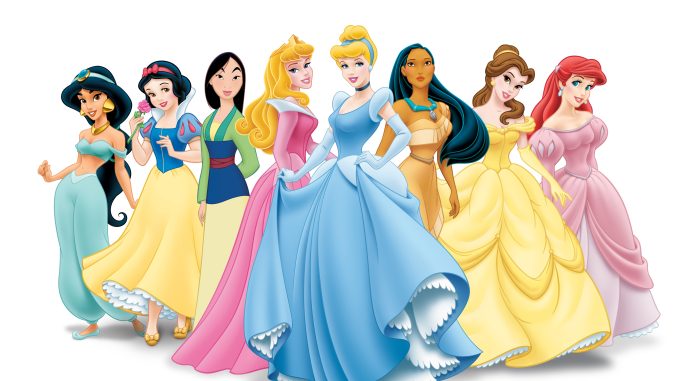
By Manar Dihyem
As a Muslim woman, it becomes difficult finding films that resonate with my beliefs. And as a woman in general, it becomes infuriating to see the way women are represented in a lot of movies. In the beginning, the rules were strict on women and how they portrayed themselves on television. Over time, the rules began to progress but simultaneously they continuously fell into the hands of men, white men. Some representations of women on television can be misleading and misrepresented, including for example, Disney princesses.
Young girls look up to these princesses, but they are unaware of who or what they idolize. Do they know these princesses create unrealistic goals for them? Or that they’re created by men? Women in television have been misrepresented for decades, and this is a problem that extends to children having preconceived notions of how a woman should look and act.
Either women are presented in a sexualized and objectified light, or they’re presented as overly strong and vicious. There’s rarely ever a median for portrayals of women. Take the children’s movie “Aladdin,” with the lead Princess Jasmine being shown as a conventionally beautiful woman. She is depicted as a woman with long hair and an hourglass-figured body. Is this the correct representation of what a woman is supposed to look like? The answer is no, it is nowhere near a proper representation of a woman. Why? Because it is creating unrealistic body expectations for the little girls who are watching animated characters.
It’s common for female characters across different shows to be depicted with “big chests, small waits, and generally unrealistic bodies,” according to Forbes. It does no justice to the situation that the writers and producers of these shows and films tend to be, more often than not, white men. This then creates a problem because it is white men determining how the female character looks and acts, arguably designing her to their personal liking. They are essentially controlling and creating what in their eyes is the “dream girl.” A woman that has a nurturing personality, cooking skills, is friendly with animals, has long hair and an hourglass figure, are just a few of what classic Disney movies portray in their princesses.
It isn’t just “Aladdin” that promotes this misrepresentation but rather, all Disney princess movies.
As a child, I always loved Disney, and my favorite princesses were Jasmine and Belle. However, I grew up watching TV without a visibly Muslim role model. I would always be on the lookout for a hijabi princess or a Muslim princess that also celebrates the same holidays as I do. But, time and time again I was let down. Because of this, I vowed to choose the princess that was (culturally) most like me – and that was Jasmine. Naturally, I continuously compared myself to her physically and emotionally. Because Princess Jasmine wore revealing clothing, young me thought that I had to dress similarly to be accepted by society. Anyone aware of the Islamic religion, however, would know that wearing revealing clothes in public conflicts with Islamic beliefs. As a child, I didn’t realize that at the time.
But over the years, I’ve come to recognize how serious representation is. An article from Forbes reads, “The constructivist approach and cultivation theory suggest that the gender role portrayals present in the films may influence children’s beliefs and ideas about gender, social behaviors, and norms.” Anecdotally, this approach is true because I experienced it firsthand. Princess Jasmine created goals that were impossible for me to follow. Some good did come out of it, though. Once I grew up and learned my religion more and spoke with other Arab and Muslim women, I realized that it’s okay that we don’t look the same. In fact, everyone is different. Everyone has different looks and beliefs, and there’s absolutely nothing wrong with that. This is why I became a film production major, to produce stories that resonate with Arab and Muslim women of all ages. And one day, I hope to be able to achieve that.
